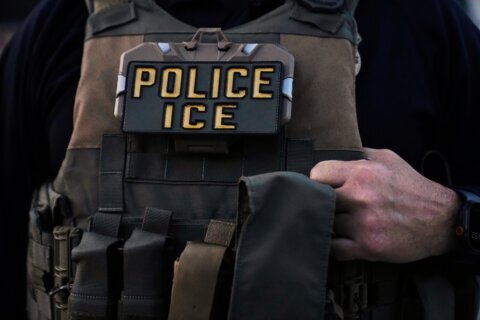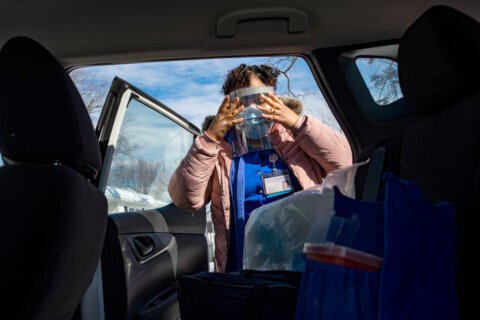ARLINGTON, Va. — Saturday was the 13th National Prescription Drug Take Back Day, when police departments across the country partner with the Drug Enforcement Agency to get rid of unneeded and unwanted prescription drugs.
“Years ago, we put them down the toilet,” Cara LaMont said as she left an Arlington firehouse. “But then we’re told we can’t do that anymore. So then we went looking around to see how to dispose them.”
It wasn’t as easy as you might think.
“I didn’t know what else to do with them,” Andy Vogelsang said. “Can’t just throw them in the trash. Afraid someone will get a hold of them and do something they shouldn’t do.”
Others in the past have tried calling government offices, hospitals — anyone — to get rid of these prescriptions.
One woman at Arlington Fire Station #8 on Lee Highway said her mom in South Carolina would put the prescriptions in a black bag, place the bag on the ground and run it over with a car to make the prescriptions worthless.
But that’s no longer needed.
She, like the many others all across the country, are going to local police and fire stations to unload prescription medications that aren’t needed any longer.
Visitors like Madelon Bloom love this take back program.
“I’m active in our green team at the office, and I alerted everyone that this is a national event, and expired drugs, drugs not being used, can be safely discarded here,” Bloom said.
Arlington usually takes in hundreds of pounds of these prescription drugs at the three fire stations where the collections are held, which has been each April and October.
Only solids like pills and patches are accepted at the more than 5,500 drop off sites all across the country.
It was a whole variety of drugs that were discarded in Arlington.
“These are prescriptions that were modified. My husband had a thyroid medication and the dosage was changed,” said Bloom.
“Pain medications, antibiotics, etc. … things that have been sitting in my bathroom and my wife’s bathroom for some time,” Tony Hall said. “They probably would have been in my bathroom for some time and I would have eventually thrown them out, probably in the trash.”
“Actually, some painkillers,” said Vogelsang. “I’ve had a few operations and I try not to take the pills unless I have to and so now they are left over and I don’t know what to do with them.”
For them, this program made it easy to make sure these prescriptions couldn’t be used for nefarious reasons or pollute the environment.
“It seems like a very simple thing to do that’s responsible,” Van Zeck said. “I would have probably hung on to them and looked for an opportunity to do it responsibly. Some of these have been around for longer than I would like to admit. Now’s a great time to get rid of them and do it in the right way.”
For others, this is the only way to discard medicines safely for free.
“Give them to the county and get rid of them because they’re not doing any good and you don’t want them to go any other place so this is good,” Hall said.







